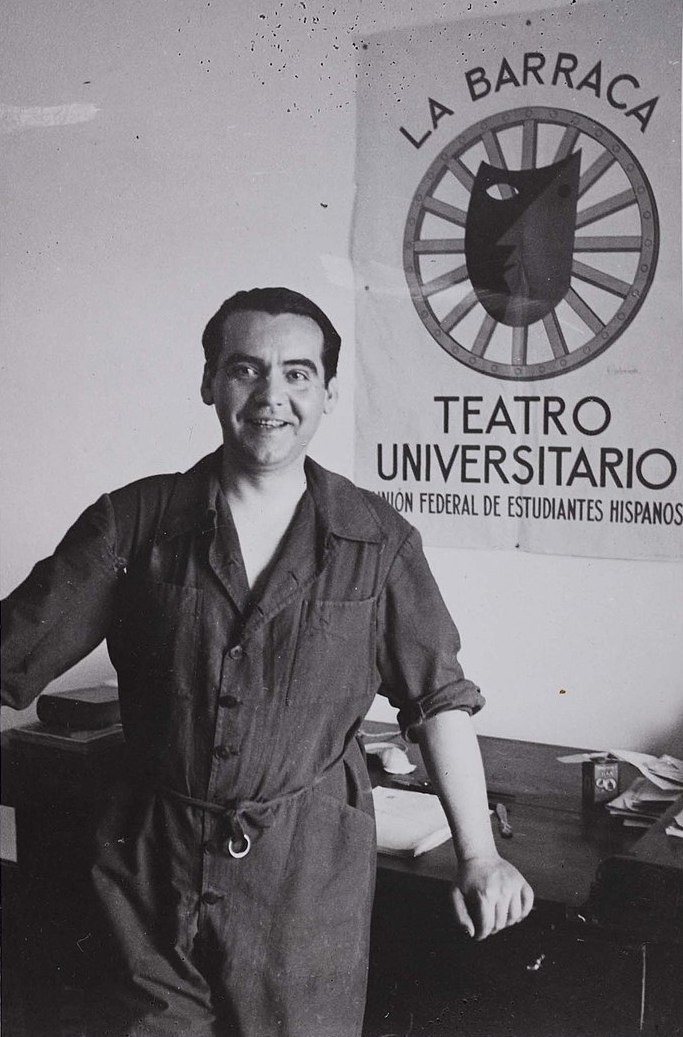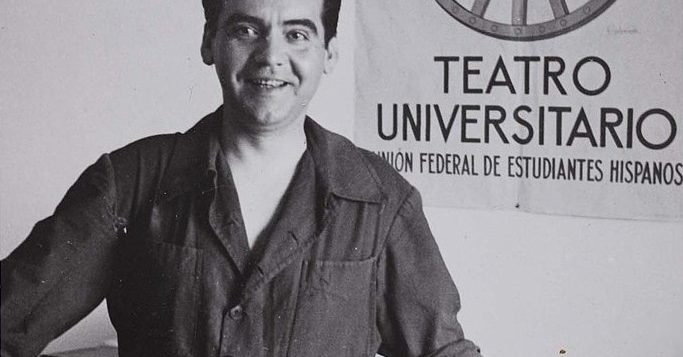THE SPANISH POET and playwright Federico García Lorca (1898-1936) is an icon of 20th-century gay history. His legacy is complex, as much about his personality as about his work, perhaps because most of his literary output is not discernably about gay subjects, though he lived a rather “out” life for conservative Spain in his era. Perceived as somewhat feminine, Lorca nonetheless did not like what he saw as flamboyance among gay friends or writers he knew. Noël Valis’ book provides considerable detail about how the semi-closeted but sexually active Lorca fit into the social and artistic community of his time, both as a creative person and as a gay man.
The book’s title is perhaps a necessary marketing hook upon which to hang this exceptionally detailed study, but half of the book is not directly about Lorca. It’s about the artistic, political, and social milieu of Spain and southern Europe in the first half of the 20th century, and what happened to the reputations of some of the major writers of this period. In addition to a discussion of the lives of such gay artists as Pier Paolo Pasolini and Álvaro Retana, the book includes a chapter on what happens to the reputation of creative artists after they are dead. Though the author has a rather ghoulish fascination with how many times certain famous bodies have been exhumed and moved, the idea of fame after death is important in considering Lorca. His transformation into an iconic eminence—a man never quite clearly seen or firmly grasped—began building shortly after his murder and continues to this day.
Valis notes that this not-quite-solid impression is augmented by “a multiplicity of Lorcas,” as people look at the poet from a remarkable number of angles—poetic, political, social, sexual, and more. Lorca’s own innate shape-shifting complexities make the task of grasping a definitive Lorca impossible. We choose our approach to his misty Andalusian hilltop and get as close as we can. This unreachability comes in part because “an air of incompleteness characterizes the man and his work,” according to Valis. This is not Lorca’s abandonment of given poetic works, as French poet Paul Valéry would have it, but rather his constant creation of the new without feeling a need to complete the old. Efforts at closure of given aspects of his creative output were precluded in a technical sense by his early death, but he was always rushing forward, shooting spectacular new ideas in all directions. As an artist, his fame was mostly in Spain until he went to New York and Latin America in his early thirties, at which time he was overwhelmed by an adoring public.

Lorca’s status as a gay man is treated thoroughly and from some unusual angles. The author asks what it means for Lorca to be a gay icon when he was not officially out during his lifetime, and very little of his written work has anything resembling a gay theme. Yes, the “Ode to Walt Whitman” includes some pointed language, not least the butterflies (mariposas) placed in Whitman’s beard, as the Spanish word was a common term for gays. Likewise there are poems like the lament for macho bullfighter Ignacio Sán-chez Mejías, memorable enough to inspire Shane McGowan decades later in The Pogues’ song “Lorca’s Novena.” Yet many gay men, some of whom were well-known Spanish poets, died during the Spanish Civil War, but Lorca’s artistic reputation and status as a gay person now towers far above the others.
In theory, his personal style should have limited his visibility. Yet the great Spanish poet Jorge Guillen noted that sheer colorfulness was the essence of Lorca, who “was above all a wellspring, a fountain burst of radiance, the very clarity of the world’s origins, freshly created and yet so ancient. In the presence of the poet—and not simply in his poetry—one breathed an aura illuminated by his own light.” And for all his reticence on the topic, he did write the following lines in his “Ode to Whitman” (after a strange rant against flagrant public expressions of homosexuality): “Wherefore my voice is not raised/ to admonish the boy who inscribes/ a girl’s name on his pillow, Walt Whitman, old friend;/ not to shame the young man who dresses himself like a bride/ in the dark of the clothes-closet.”
Lorca was not a modern gay man, yet he is a shining part of our cherished history. The timing of his death in 1936 was perhaps ideal for myth-making—when modern media were capable of promoting a charismatic and talented person who died during the Spanish Civil War, a murder with no corpse. That was enough to ignite the first flame of many that brought enough light to who he is—somehow he does not seem quite dead—and what he means to us today.
Alan Contreras is a writer and higher education consultant who lives in Eugene, Oregon.







